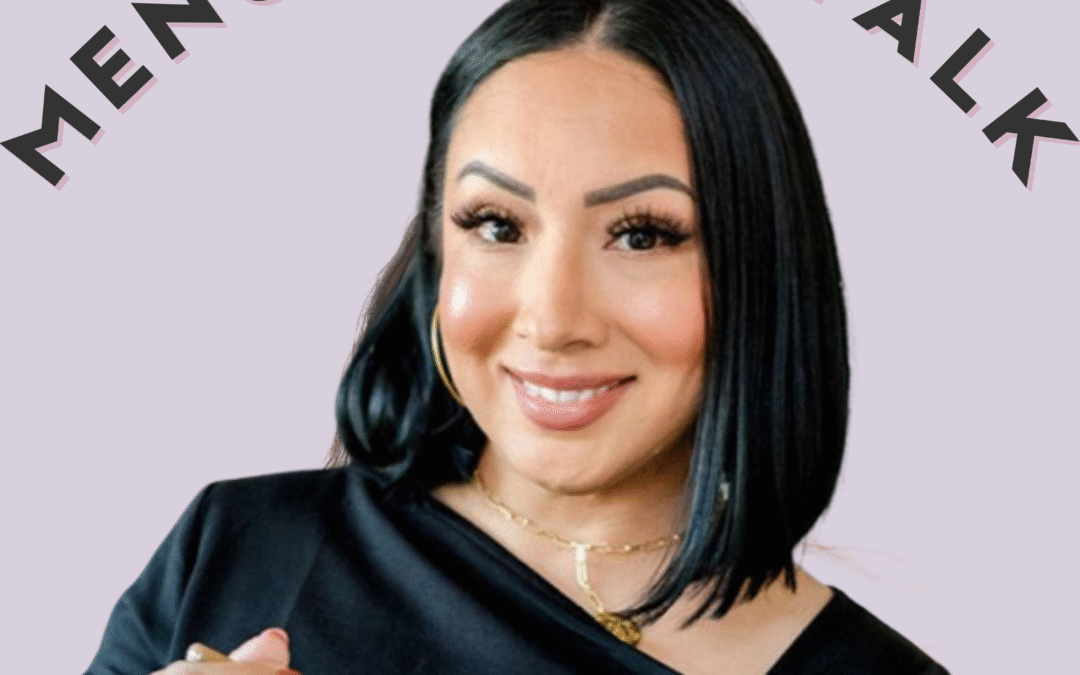Navigating perimenopause, menopause, and post-menopause can feel overwhelming, but being prepared for your doctor’s appointment can make all the difference. As someone who’s walked this path and seen my own mother struggle, I know how empowering it is to take charge of your health and advocate for yourself. You know your body better than anyone, and when you combine that self-knowledge with your doctor’s expertise, it creates the best possible foundation for your care-coming prepared makes this partnership truly powerful.
Why Preparation Matters
Doctors are experts in medicine, but you are the expert on your body. When you come to your appointment prepared-with symptoms tracked, questions ready, and your health history in hand-you ensure your concerns are heard and addressed. I’ve learned firsthand that if I don’t write down my symptoms or questions, I often forget them in the moment. That’s why I created this guide: to help you get the most out of every visit.
What to Bring and Track Before Your Appointment
1. Symptom Diary
-
Track symptoms for at least a few weeks before your visit.
-
Note changes in your periods, sleep, mood, libido, memory, energy, weight, and any new aches or pains.
2. Personal Health History
-
List current and past medications and supplements.
-
Note any previous surgeries, injuries, or diagnoses (cancer, heart disease, bone health, etc.).
-
Bring dates of your last screenings (mammogram, bone density, etc.).
3. Family Health History
-
Gather information on relatives’ health (cancer, heart disease, diabetes, osteoporosis, etc.), including age at diagnosis.
4. List of Questions & Goals
-
Write down your questions and what you want to get out of the visit.
-
Example: “What are my options for managing hot flashes?” or “Is hormone therapy right for me?”.
Key Questions to Ask Your Doctor
Drawing from Dr. Mary Claire Haver, Chalene Johnson, and top menopause experts, here are essential questions to bring to your appointment:
About Your Symptoms & Diagnosis
-
Am I in perimenopause, menopause, or post-menopause?
-
What symptoms should I expect, and how long might they last?
-
Are there tests to confirm my stage or rule out other conditions?
About Treatment Options
-
What are my options for managing symptoms (lifestyle, supplements, hormone therapy, non-hormonal medications)?
-
What are the risks and benefits of hormone therapy for me?
-
Are there alternatives if I can’t or don’t want to take hormones?
About Your Overall Health
-
How does menopause affect my risk for heart disease, osteoporosis, dementia, or cancer?
-
What screenings or tests should I have at this stage?
About Sexual & Mental Health
-
How might menopause affect my sex drive, intimacy, or vaginal health?
-
What can I do about sleep issues, mood swings, or brain fog?
About Your Specific Concerns
-
I have a history of (breast cancer, blood clots, migraines, etc.)-how does that affect my options?
-
What should I watch for that would require follow-up or urgent care?
Recommended Tests to Discuss
Based on Dr. Mary Claire Haver’s Menopause Empowerment Guide and academic research:
-
CBC, CMP, and Lipid Panel: General health, anemia, kidney/liver function, and cholesterol.
-
Hemoglobin A1C: Blood sugar control and diabetes risk.
-
Thyroid Panel: Especially if you have fatigue, weight changes, or mood symptoms.
-
Vitamin D, Zinc, Magnesium: Common deficiencies that worsen menopause symptoms.
-
Iron, Ferritin, B12, Folate: To rule out anemia and related fatigue.
-
Inflammation Markers (CRP, ESR): For chronic pain or fatigue.
-
Bone Density Scan (DEXA): To assess osteoporosis risk.
How to Advocate for Yourself
-
Set the tone: If you’ve felt dismissed before, say so up front: “In the past, my concerns have been dismissed. I want to make sure that doesn’t happen today.”
-
Stand your ground: If labs are normal but you still feel unwell, say: “I know my body best. Can we think more broadly about my symptoms?”
-
Ask for referrals: If you’re not getting answers, request a specialist or additional testing.
-
Bring information: Print out credible articles (like Dr. Haver’s guides) to support your questions and show you’ve done your homework.
Resources to Empower Your Journey
-
Dr. Mary Claire Haver: The Pause Life, The New Menopause, The Galveston Diet
-
Chalene Johnson: Phase It, podcasts, and question guides
-
Dr. Lisa Mosconi: The XX Brain, The Menopause Brain-brain health during menopause
-
Dr. Corinne Menn: Menopause and breast cancer
-
Dr. Vonda Wright: Bone health and longevity
-
Dr. Heather Hirsch: Perimenopause expertise
Books I Recommend:
The XX Brain, The New Menopause, Estrogen Matters, The Galveston Diet, The Menopause Brain
Personal Takeaway
Educating myself about this transition has been life-changing. I used to fear menopause after seeing my mom struggle, but learning from experts, reading, and preparing for my doctor visits has empowered me to take charge of my health. This is just a transition-you do not have to suffer. The earlier you prepare, the better your journey will be.
Final Checklist: How to Prepare for Your Visit
-
Track your symptoms and periods.
-
Bring your personal and family health history.
-
Write down your questions and concerns.
-
List all medications and supplements.
-
Gather records of recent screenings and tests.
-
Bring a notebook to jot down answers during your visit.
You Are Not Alone
There are more resources, tools, and support available today than ever before. Don’t hesitate to seek out menopause specialists, join supportive communities, and keep educating yourself. This is part one of a two-part series-next week, I’ll share even more resources and tools that have helped me navigate this transition with confidence.
Remember: You and your doctor are a team. Come prepared, ask questions, and never settle for suffering in silence. Here’s to a healthier, empowered you!
References: Dr. Mary Claire Haver, Chalene Johnson, Dr. Lisa Mosconi, Dr. Kelly Casperson, Dr. Corinne Menn, Dr. Vonda Wright, Dr. Heather Hirsch, PubMed, The New Menopause, The XX Brain, Estrogen Matters, The Galveston Diet, The Menopause Brain, academic research and clinical guidelines.
This content is for educational purposes only and is not medical advice; always consult your doctor before starting any new health plan or making changes to your care.
Xo,
Clarita, Founder of Claridad

